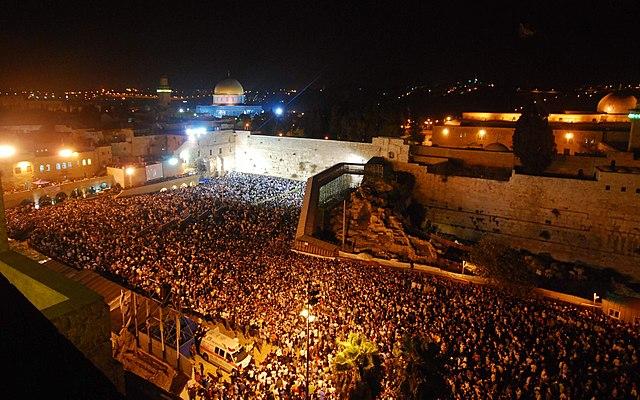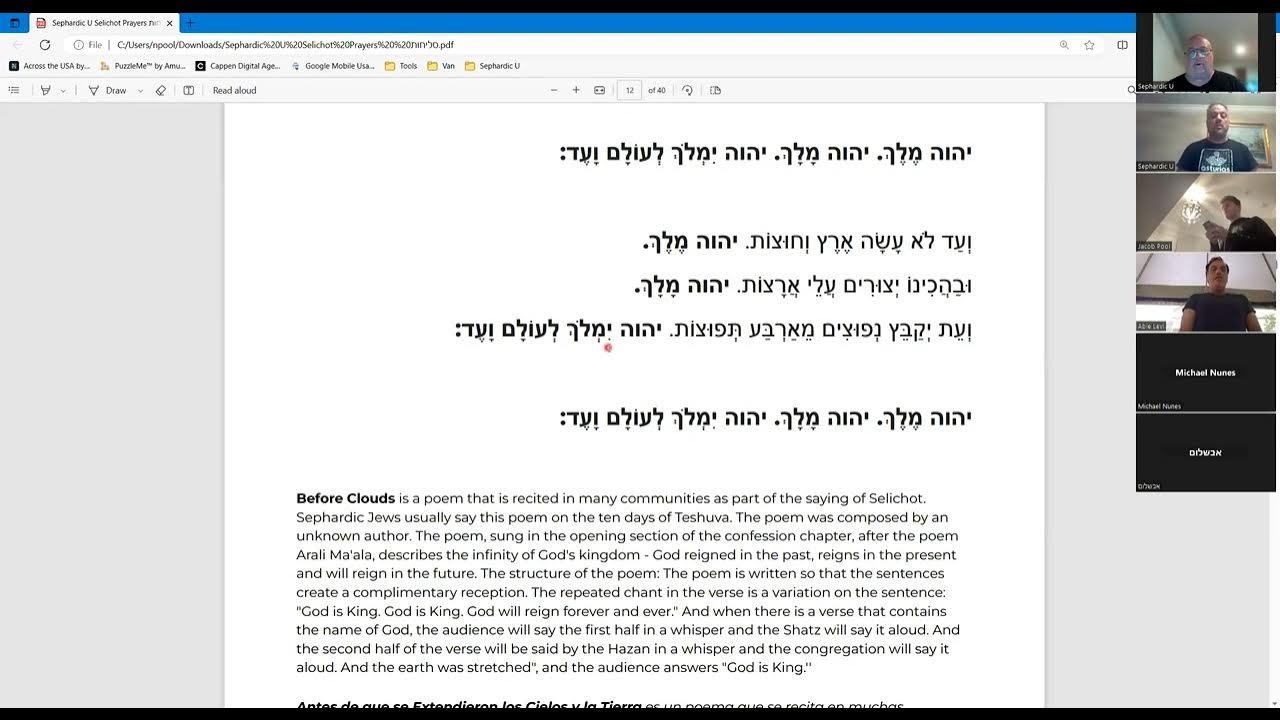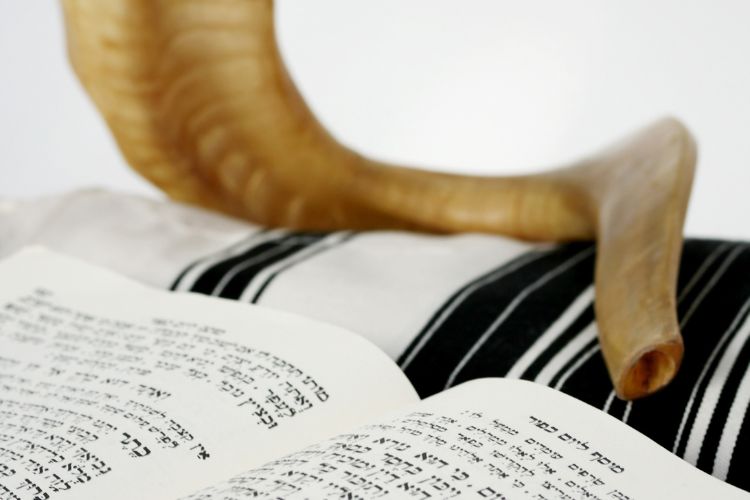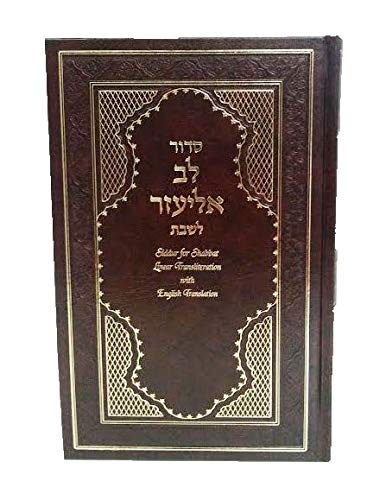Selichot
Edot HaMizrach
Composed: c.1500 – c.1700 CE
Selichot, from a Sephardic and Mizrahi perspective, are rooted in a rich historical tapestry that stretches back centuries. The word “Selichot” itself refers to penitential prayers and supplications, expressing the heartfelt plea for forgiveness and Divine mercy.
The origins of Selichot can be traced to the early days of Jewish tradition. They are believed to have been influenced by the prayers of King David, as recorded in the Book of Psalms, which express themes of repentance and Divine compassion. Over time, the practice of reciting Selichot was further developed and formalized, incorporating elements from the Hebrew Bible, rabbinic literature, and the profound spiritual experiences of Jewish communities.
The specific structure and content of Selichot as we know them today began to take shape during the medieval period. Scholars and poets from various Sephardic and Mizrahi Jewish communities contributed to the development of the Selichot liturgy, creating poetic verses and passages that encapsulated the themes of repentance, forgiveness, and Divine mercy. These compositions drew from the cultural and historical contexts of the Jewish communities, infusing Selichot with a sense of authenticity and relatability.
The tradition of reciting Selichot during the month of Elul, leading up to Rosh Hashanah and Yom Kippur, is a deeply ingrained practice in Sephardic and Mizrahi Jewish communities. The period of Selichot provides a dedicated time for introspection, self-examination, and repentance in preparation for the High Holy Days.
Sephardic and Mizrahi Jews traditionally begin reciting Selichot in the days leading up to Rosh Hashanah. The specific date varies based on custom and tradition, but it often occurs in the early morning hours before dawn. These pre-dawn Selichot services create a unique atmosphere of devotion and solemnity, as individuals gather to beseech Divine forgiveness and mercy before the break of day.
In Sephardic and Mizrahi communities, Selichot are characterized by their distinct melodies, which are often deeply ingrained in the cultural fabric of the community. These melodies create a spiritual ambiance that facilitates personal reflection, introspection, and a connection to the ancient prayers of the Jewish people.
Through the practice of Selichot, Sephardic and Mizrahi Jews engage with their heritage, traditions, and faith in a profound way. The history and tradition of Selichot serve as a reminder of the enduring commitment to seeking Divine forgiveness and renewal, connecting individuals to generations of Jews who have engaged in these meaningful prayers throughout history.
סליחות
נוסח עדות המזרח
יִתְגַּדַּל וְיִתְקַדַּשׁ שְׁמֵיהּ רַבָּא. (אמן) בְּעָלְמָא דִּי בְרָא כִּרְעוּתֵיהּ. וְיַמְלִיךְ מַלְכוּתֵיהּ. וְיַצְמַח פֻּרְקָנֵיהּ. וִיקָרֵב מְשִׁיחֵיהּ. (אמן) בְּחַיֵּיכוֹן וּבְיוֹמֵיכוֹן וּבְחַיֵּי דְכֹל בֵּית יִשְׂרָאֵל בַּעֲגָלָא וּבִזְמַן קָרִיב וְאִמְרוּ אָמֵן. (אמן) יְהֵא שְׁמֵיהּ רַבָּא מְבָרַךְ לְעָלַם לְעָלְמֵי עָלְמַיָּא יִתְבָּרַךְ. וְיִשְׁתַּבַּח. וְיִתְפָּאַר. וְיִתְרוֹמַם. וְיִתְנַשֵֹּא. וְיִתְהַדָּר. וְיִתְעַלֶּה. וְיִתְהַלָּל שְׁמֵיהּ דְּקֻדְשָׁא בְּרִיךְ הוּא. (אמן) לְעֵילָּא מִן כָּל בִּרְכָתָא. שִׁירָתָא. תִּשְׁבְּחָתָא וְנֶחָמָתָא. דַּאֲמִירָן בְּעָלְמָא וְאִמְרוּ אָמֵן. (אמן)
לְמַעַנְךָ אֱלֹהַי. רְצֵה עַם לְךָ שִׁחַר. לְחַלּוֹת פָּנֶיךָ. בְּמַעֲמַד הַשַּׁחַר. אֲדֹנָי הַקְשִׁיבָה וַעֲשֵׂה אַל תְּאַחַר:
רַחֲמָנָא כַּתְבִינָן בְּסִפְרָא דְחַיֵּי טָבֵי, בְּדִיל וַיַּעֲבֹר:
אֱלֹהֵינוּ שֶׁבַּשָּׁמַיִם כָּתְבֵנוּ בְּסֵפֶר חַיִּים טוֹבִים:
אֵל רַחוּם שְׁמָךְ. אֵל חַנּוּן שְׁמָךְ. רְאֵה בָּעֳנִי עַמָּךְ. רַחֵם עַל עוֹלָמָךְ:
יֶהֶוֶהֶ חָנֵּנוּ וַהֲקִימֵנוּ, וּבְסֵפֶר חַיִּים זָכְרֵנוּ וְכָתְבֵנוּ:
יָהּ שְׁמַע אֶבְיוֹנֶיךָ. הַמְחַלִּים פָּנֶיךָ. אָבִינוּ לְבָנֶיךָ. אַל תַּעְלֵם אָזְנֶיךָ.
אִם אָפֵס רֹבַע הַקֵּן. אֹהֶל שִׁכֵּן אִם רִקֵּן. אַל נָא נֹאבְדָה כִּי עַל כֵּן. יֵשׁ לָנוּ אָב זָקֵן: פָּנִים לוֹ תַכִּיר. וְצִדְקוֹ לְפָנֶיךָ נַזְכִּיר. קַח נָא בֵּן יַקִּיר. וְנִמְצָה דָמוֹ עַל קִיר: רָץ אֶל הַנַּעַר לְהַקְדִּישׁוֹ. וְנַפְשׁוֹ קְשׁוּרָה בְּנַפְשׁוֹ. עִטְּרוֹ בָּעֵצִים וְאִשּׁוֹ. נֵזֶר אֱלֹהָיו עַל רֹאשׁוֹ: יָחִיד הוּקַל כַּצְּבִי. עָנָה וְאָמַר אָבִי. הִנֵּה הָאֵשׁ וְהָעֵצִים נָבִיא. וּתְשׁוּרָה אֵין לְהָבִיא: מִלִּים הֱשִׁיבוֹ מִלְּהַבְהִילוֹ. וַיַּעַן וַיֹּאמֶר לוֹ. בְּנִי, אֱלֹהִים יִרְאֶה לוֹ. וְיוֹדַע יהוה אֶת אֲשֶׁר לוֹ: בְּמִצְוָתְךָ שְׁנֵיהֶם נִזְהָרִים. וְאַחֲרֶיךָ לֹא מְהַרְהְרִים. חָשׁוּ וְהָלְכוּ נִמְהָרִים. עַל אַחַד הֶהָרִים: רָאוּ אֵד תְּלוּלָה. מִהֲרוּ עֲצֵי עוֹלָה. יַחַד בְּאַהֲבָה כְּלוּלָה. יַשְּׁרוּ בָּעֲרָבָה מְסִלָּה: רָאָה יָחִיד כִּי הוּא הַשֶֹּה. נָאַם לְהוֹרוֹ הַמְּנֻסֶּה. אָבִי אוֹתִי כַּכֶּבֶשׂ תַּעֲשֶׂה. לֹא תַחְמֹל וְלֹא תְכַסֶּה: בִּי חָפֵץ וְנִכְסֹף. לְבָבִי לוֹ לַחֲשֹׂף. אִם תִּמְנָעֵנִי סוֹף. רוּחִי וְנִשְׁמָתִי אֵלָיו יֶאֱסֹף: יָדָיו וְרַגְלָיו עָקַד. וְחַרְבּוֹ עָלָיו פָּקַד. לְשׂוּמוֹ עַל הָעֵצִים שָׁקַד. וְהָאֵשׁ עַל הַמִּזְבֵּחַ תּוּקַד: צַוָּאר פָּשַׁט מֵאֵלָיו. וְאָבִיו נִגַּשׁ אֵלָיו. לְשֹׁחֲטוֹ לְשֵׁם בְּעָלָיו. וְהִנֵּה יהוה נִצָּב עָלָיו: חֲקֹר אֶת כָּל אֲשֶׁר עָשָׂה. הָאָב עַל בְּנוֹ לֹא חָסָה. וְלִבּוֹ אֶל כַּפַּיִם נָשָׂא. וַיַּרְא אֱלֹהִים אֶת כָּל אֲשֶׁר עָשָׂה: קָרָא מֵרֶחֶם מִשְׁחָר. תְּמוּר בִּנְךָ הַנִּבְחָר. וְהִנֵּה אַיִל אַחַר. וַעֲשֵׂה אַל תְּאַחַר: חֲלִיפֵי אַזְכָּרָתוֹ. תִּכּוֹן כְּהַקְטָרָתוֹ. וְתַעֲלֶה לְךָ תִּימְרָתוֹ. וְהָיָה הוּא וּתְמוּרָתוֹ:
בְּזָכְרִי עַל מִשְׁכָּבִי, זְדוֹן לִבִּי וַאֲשָׁמָיו. אָקוּמָה וְאָבוֹאָה, אֶל בֵּית אֱלֹהַי וַהֲדוֹמָיו. וָאֹמַר בְּנָשְׂאִי עַיִן, בְּתַחֲנוּנַי אֱלֵי שָׁמָיו. נִפְּלָה נָּא בְּיַד יהוה כִּי רַבִּים רַחֲמָיו:
אָבִינוּ מַלְכֵּנוּ אָבִינוּ אַתָּה. אָבִינוּ מַלְכֵּנוּ אֵין לָנוּ אֶלָּא אַתָּה. אָבִינוּ מַלְכֵּנוּ רַחֵם עָלֵינוּ: אִם הֵטַבְנוּ פֹעַל. אָבִינוּ אַתָּה. וְאִם הֵרַעְנוּ מַעַל. אֵין לָנוּ אֶלָּא אַתָּה. אָבִינוּ מַלְכֵּנוּ רַחֵם עָלֵינוּ: אִם גָּבַר פִּשְׁעֵנוּ. אָבִינוּ אַתָּה. אַתָּה צוּר יִשְׁעֵנוּ. אֵין לָנוּ אֶלָּא אַתָּה. אָבִינוּ מַלְכֵּנוּ רַחֵם עָלֵינוּ: אִם הִרְבִּינוּ אֹמֶר. אָבִינוּ אַתָּה. זְכֹר כִּי אֲנַחְנוּ חֹמֶר. אֵין לָנוּ אֶלָּא אַתָּה. אָבִינוּ מַלְכֵּנוּ רַחֵם עָלֵינוּ: אִם לְךָ חָטָאנוּ. אָבִינוּ אַתָּה. אָדוֹן סְלַח לָנוּ. אֵין לָנוּ אֶלָּא אַתָּה. אָבִינוּ מַלְכֵּנוּ רַחֵם עָלֵינוּ: לְךָ יהוה קִוִּינוּ. אָבִינוּ אַתָּה. כִּי אַתָּה אָבִינוּ. אֵין לָנוּ אֶלָּא אַתָּה. אָבִינוּ מַלְכֵּנוּ רַחֵם עָלֵינוּ: לְךָ פֵּרַשְׂנוּ שַׁעַל. אָבִינוּ אַתָּה. הַמְצִיא לָנוּ תַּעַל. אֵין לָנוּ אֶלָּא אַתָּה. אָבִינוּ מַלְכֵּנוּ רַחֵם עָלֵינוּ: חוּשָׁה שְׁלַח מָשִׁיחַ. אָבִינוּ אַתָּה. וְצִיץ יֶשַׁע תַּפְרִיחַ. אֵין לָנוּ אֶלָּא אַתָּה. אָבִינוּ מַלְכֵּנוּ רַחֵם עָלֵינוּ: אָבִינוּ מַלְכֵּנוּ אָבִינוּ אַתָּה. אָבִינוּ מַלְכֵּנוּ אֵין לָנוּ מֶלֶךְ אֶלָּא אַתָּה. אָבִינוּ מַלְכֵּנוּ רַחֵם עָלֵינוּ:
יִתְגַּדַּל וְיִתְקַדַּשׁ שְׁמֵהּ רַבָּא. (אמן) בְּעָלְמָא דִּי בְרָא כִּרְעוּתֵיהּ. וְיַמְלִיךְ מַלְכוּתֵיהּ. וְיַצְמַח פֻּרְקָנֵיהּ. וִיקָרֵב מְשִׁיחֵיהּ. (אמן) בְּחַיֵּיכוֹן וּבְיוֹמֵיכוֹן וּבְחַיֵּי דְכֹל בֵּית יִשְׂרָאֵל בַּעֲגָלָא וּבִזְמַן קָרִיב וְאִמְרוּ אָמֵן. (אמן) יְהֵא שְׁמֵהּ רַבָּא מְבָרַךְ לְעָלַם וּלְעָלְמֵי עָלְמַיָּא יִתְבָּרַךְ. וְיִשְׁתַּבַּח. וְיִתְפָּאַר. וְיִתְרוֹמַם. וְיִתְנַשֵֹּא. וְיִתְהַדָּר. וְיִתְעַלֶּה. וְיִתְהַלָּל שְׁמֵיהּ דְּקֻדְשָׁא בְּרִיךְ הוּא. (אמן) לְעֵילָּא מִן כָּל בִּרְכָתָא. שִׁירָתָא. תִּשְׁבְּחָתָא וְנֶחָמָתָא. דַּאֲמִירָן בְּעָלְמָא וְאִמְרוּ אָמֵן. (אמן): תֵּעָנוּ וְתֵעָתְרוּ בְּרַחֲמִים מִן הַשָּׁמַיִם. תְּקֻבַּל צַעֲקַתְכֶם. תִּשָּׁמַע תְּפִלַּתְכֶם בְּרָצוֹן. וְיֵעָנֶה קוֹל עֲתִירַתְכֶם. וִיקַיֵּם בָּכֶם מִקְרָא שֶׁכָּתוּב: יהוה אֱלֹהֵי אֲבוֹתֵכֶם יֹסֵף עֲלֵיכֶם כָּכֶם אֶלֶף פְּעָמִים. וִיבָרֵךְ אֶתְכֶם כַּאֲשֶׁר דִּבֶּר לָכֶם. (בעשרת ימי תשובה: וְיִכְתָּבְכֶם הָאֵל בְּסֵפֶר חַיִּים טוֹבִים) וְכֵן יְהִי רָצוֹן וְנֹאמַר אָמֵן: (אמן): תִּתְקַבַּל צְלוֹתָנָא וּבָעוּתָנָא עִם צְלוֹתְהוֹן וּבָעוּתְהוֹן דְּכָל בֵּית יִשְׂרָאֵל. קֳדָם אֲבוּנָא דְבִשְׁמַיָּא וְאַרְעָא וְאִמְרוּ אָמֵן: (אמן): יְהֵא שְׁלָמָא רַבָּא מִן שְׁמַיָּא. חַיִּים וְשָׂבָע וִישׁוּעָה וְנֶחָמָה וְשֵׁיזָבָא וּרְפוּאָה וּגְאֻלָּה וּסְלִיחָה וְכַפָּרָה וְרֶוַח וְהַצָּלָה. לָנוּ וּלְכָל עַמּוֹ יִשְׂרָאֵל וְאִמְרוּ אָמֵן. (אמן): עוֹשֶׂה שָׁלוֹם בִּמְרוֹמָיו. הוּא בְּרַחֲמָיו יַעֲשֶׂה שָׁלוֹם עָלֵינוּ. וְעַל כָּל עַמּוֹ יִשְׂרָאֵל וְאִמְרוּ אָמֵן. (אמן):
יִתְגַּדַּל וְיִתְקַדַּשׁ שְׁמֵיהּ רַבָּא. (אמן) בְּעָלְמָא דִּי בְרָא כִּרְעוּתֵיהּ. וְיַמְלִיךְ מַלְכוּתֵיהּ. וְיַצְמַח פֻּרְקָנֵיהּ. וִיקָרֵב מְשִׁיחֵיהּ. (אמן) בְּחַיֵּיכוֹן וּבְיוֹמֵיכוֹן וּבְחַיֵּי דְכֹל בֵּית יִשְׂרָאֵל בַּעֲגָלָא וּבִזְמַן קָרִיב וְאִמְרוּ אָמֵן. (אמן) יְהֵא שְׁמֵיהּ רַבָּא מְבָרַךְ לְעָלַם לְעָלְמֵי עָלְמַיָּא יִתְבָּרַךְ. וְיִשְׁתַּבַּח. וְיִתְפָּאַר. וְיִתְרוֹמַם. וְיִתְנַשֵֹּא. וְיִתְהַדָּר. וְיִתְעַלֶּה. וְיִתְהַלָּל שְׁמֵיהּ דְּקֻדְשָׁא בְּרִיךְ הוּא. (אמן) לְעֵילָּא מִן כָּל בִּרְכָתָא. שִׁירָתָא. תִּשְׁבְּחָתָא וְנֶחָמָתָא. דַּאֲמִירָן בְּעָלְמָא וְאִמְרוּ אָמֵן. (אמן): יְהֵא שְׁלָמָא רַבָּא מִן שְׁמַיָּא. חַיִּים וְשָׂבָע וִישׁוּעָה וְנֶחָמָה וְשֵׁיזָבָא וּרְפוּאָה וּגְאֻלָּה וּסְלִיחָה וְכַפָּרָה וְרֶוַח וְהַצָּלָה. לָנוּ וּלְכָל עַמּוֹ יִשְׂרָאֵל וְאִמְרוּ אָמֵן. (אמן): עוֹשֶׂה שָׁלוֹם בִּמְרוֹמָיו. הוּא בְרַחֲמָיו יַעֲשֶׂה שָׁלוֹם עָלֵינוּ. וְעַל כָּל עַמּוֹ יִשְׂרָאֵל וְאִמְרוּ אָמֵן. (אמן):
Selichot
Sephardic Selichot
more on Selichot

Siddur Ner Tamid - Selichot: Transliterated Sephardic Selichot (Edot HaMizrach)
[Print Replica] Kindle Edition

Siddur Ner Tamid - Weekday: Transliterated Sephardic Siddur (Edot HaMizrach)
[Print Replica] Kindle Edition
Quick Guide: The Five Books of Moses
| Genesis | Exodus | Leviticus | Numbers | Deuteronomy |
|---|---|---|---|---|
| Bereshit (1:1-6:8) |
Shemot (1:1-6:1) |
Vayikra (1:1-5:26) |
Bemidbar (1:1-4:20) |
Devarim (1:1-3:22) |
| Noach (6:9-11:32) |
Va'era (6:2-9:35) |
Tzav (6:1-8:36) |
Naso (4:21-7:89) |
Va'etchanan (3:23-7:11) |
| Lech Lecha (12:1-17:27) |
Bo (10:1-13:16) |
Shemini (9:1-11:47) |
Behaalotecha (8:1-12:16) |
Ekev (7:12-11:25) |
| Vayera (18:1-22:24) |
Beshalach (13:17-17:16) |
Tazria (12:1-13:59) |
Shelach (13:1-15:41) |
Re'eh (11:26-16:17) |
| Chaye Sarah (23:1-25:18) |
Yitro (18:1-20:23) |
Metzora (14:1-15:33) |
Korach (16:1-18:32) |
Shoftim (16:18-21:9) |
| Toledot (25:19-28:9) |
Mishpatim (21:1-24:18) |
Achare Mot (16:1-18:30) |
Chukat (19:1-22:1) |
Ki Tetze (21:10-25:19) |
| Vayetze (28:10-32:3) |
Teruma (25:1-27:19) |
Kedoshim (19:1-20:27) |
Balak (22:2-25:9) |
Ki Tavo (26:1-29:8) |
| Vayishlach (32:4-36:43) |
Tetzave (27:20-30:10) |
Emor (21:1-24:23) |
Pinchas (25:10-30:1) |
Nitzavim (29:9-30:20) |
| Vayeshev (37:1-40:23) |
Ki Tisa (30:11-34:35) |
Behar (25:1-26:2) |
Matot (30:2-32:42) |
Vayelech (31:1-30) |
| Miketz (41:1-44:17) | Vayakhel (35:1-38:20) |
Bechukotai (26:3-27:34) |
Masei (33:1-36:13) |
Haazinu (32:1-52) |
| Vayigash (44:18-47:27) |
Pekude (38:21-40:38) |
V'Zot HaBeracha (33:1-34:12) |
||
| Vayechi (47:28-50:26) |





















Ohr HaChaim Yomi – Emor